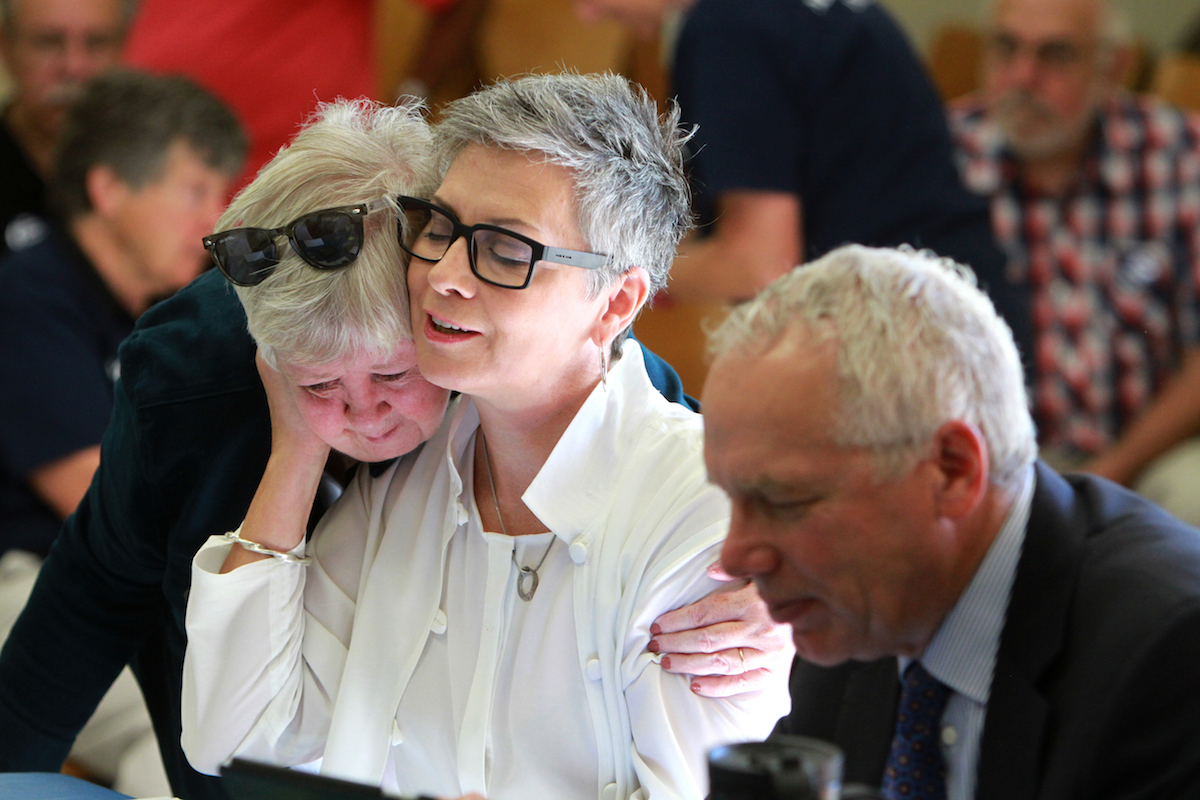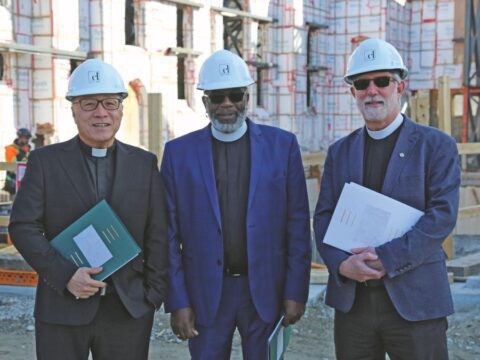A Toronto Conference committee looking into the beliefs of Rev. Gretta Vosper has decided that she is not suitable for ministry in The United Church of Canada. In a report released on Sept. 8, the majority of the 24-person Conference Interview Committee found that Vosper is “unwilling and unable to reaffirm her 1993 ordination vows” and “is no longer in essential agreement with the statement of doctrine of The United Church of Canada.”
The committee recommended that Conference ask the church’s General Council to call a formal hearing to consider placing the name of Rev. Gretta Vosper on the Discontinued Service List (Disciplinary). If that hearing accepts the committee’s conclusion, Vosper will no longer be able to work as a United Church minister, essentially firing her from her position at West Hill United in Toronto.
You may unsubscribe from any of our newsletters at any time.
But after meeting on Sept. 15 — and hearing presentations from Vosper, her congregation, Toronto Southeast Presbytery and her lawyer Julian Falconer — Toronto Conference’s Sub-Executive had not decided on whether or not to follow the committee’s recommendation. More than 50 of Vosper’s supporters, mainly from among her 220-member congregation, attended the open portion of the meeting wearing buttons calling for “dialogue not discipline.”
A prolific blogger, author and guest speaker, Vosper calls herself an atheist and has been serving her congregation for 19 years. They support her wholeheartedly and attempted to block Conference’s review of her ministry.
While Vosper appealed to the Sub-Executive’s spirit of generosity, her congregation attested to the strength of her ministry as an indication of her suitability. Falconer said moving to a formal hearing “is a huge mistake” and called for Conference to put the review on hold for a year in favour of a structured dialogue or debate. “Putting Gretta on trial is not a way to ensure a principled debate,” he said.
The Sub-Executive will meet again on Sept. 19, but a Conference official gave no assurance that a decision would be made then. When a decision is reached, it will be shared with Vosper and the West Hill United congregation before being released publicly.
The review was initially ordered by Conference last year, after it said it had received numerous complaints about Vosper’s statements and high public profile. On her website, she refers to herself as “minister, author, atheist.” During her ministry, West Hill United stopped saying the Lord’s Prayer and regularly reading Scripture; it holds a “gathering” instead of Sunday worship.
The review was delayed by a year after Vosper appealed a ruling by Nora Sanders, the general secretary of General Council, that recommended a process it should follow.
Normally, United Church ministers are placed on the Discontinued Service List (Disciplinary) for misconduct or ineffectiveness in ministry. Vosper’s case is unique because her congregation supports her and she has never been shown to contravene the usual standards of effectiveness.
However, Sanders’ ruling said that Vosper could be deemed an ineffective minister if she was found to be unsuitable for ministry. Toronto Conference’s Interview Committee — whose task normally is to decide on the suitability of candidates seeking to become ministers — was named as the appropriate body to gauge Vosper’s suitability, based on her current responses to a series of standard questions candidates must answer before ordination. The first is: “Do you believe in God: Father, Son and Holy Spirit, and do you commit yourself anew to God?”
The review was unprecedented. A minister has never before been asked to revisit ordination vows. Vosper told the interview committee that she does not believe in a Trinitarian God or a supernatural god. She said love is the most sacred value and that she had stopped using the word “God” because it was a barrier to participation in the church.
While 19 of the committee’s members voted that Vosper is unsuitable to continue in ordered ministry, four opposed the motion. They pointed out that the church’s doctrine continues to evolve and that many of Vosper’s theological positions, “while not in the mainstream, are not unique amongst the ministers and laypersons of the United Church.”














